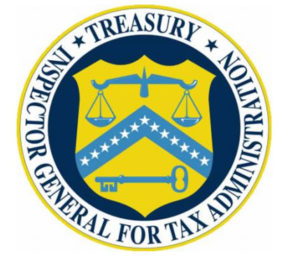IRS Employee Pleads Guilty to the Unauthorized Disclosure of Suspicious Activity Reports
Saturday, November 23rd, 2019 @ 1:17AM
CFEG reports that on August 14, 2019, in a federal district court in the Northern District of California, an IRS employee pled guilty to the unauthorized disclosure of Suspicious Activity Reports (SARs). He was previously indicted for the offense in February 2019. https://www.treasury.gov/tigta/oi_highlights.shtml
According to court documents, the IRS employee is an investigative analyst for IRS Criminal Investigation (IRS-CI) in San Francisco, California, and worked for the IRS since 2008. In this position, he had access to various law enforcement databases, including the Financial Crimes Enforcement Network (FinCEN) and Palantir, which is an analytic software used by IRS-CI. FinCEN manages the collection and maintenance of SARs, which financial institutions are required to generate under the Bank Secrecy Act to report potentially suspicious financial transactions. TIGTA reported that the disclosure of a SAR or its contents is unlawful, and employees or agents of Government authorities are prohibited from disclosing a SAR, or any information that would reveal even the existence of a SAR, except as necessary to fulfill official duties. https://www.treasury.gov/tigta/oi_highlights.shtml
TIGTA reported that the IRS employee admitted that on May 4, 2018, he logged on to the Palantir database from his work computer and downloaded five SARs related to Michael Cohen and his company, Essential Consultants. The IRS employee then called Michael Avenatti, an attorney based in Newport Beach, California, twice from his personal cell phone. During those conversations, the IRS employee verbally provided information contained in the five SARs to Avenatti. The IRS employee also used one of his personal e-mail accounts to e-mail screenshots of the SARs to Avenatti. The IRS employee admitted that on May 7, 2018, he logged on to the FinCEN database from his work computer and conducted additional searches related to Cohen and Essential Consultants. He then called Avenatti from his personal cell phone and verbally provided information contained in the searches. The IRS employee admitted that he had no official reason in his capacity as an IRS investigative analyst to disclose SAR records related to Cohen or the various companies listed in the SARs. https://www.treasury.gov/tigta/oi_highlights.shtml
TIGTA reported that on May 8, 2018, Avenatti circulated a dossier on his public Twitter account releasing the confidential banking information related to Cohen and Essential Consultants. On May 8, 2018, The Washington Post published an article that discussed in detail claims about Cohen’s banking history made public in Avenatti’s dossier. On May 12, 2018, the IRS employee placed an outgoing call to a number later identified as being associated with a reporter. On May 16, 2018, The New Yorker published an article written by this reporter titled “Missing Files Motivated the Leak of Michael Cohen’s Financial Records.” The article reported that the source, identified only as a law enforcement officer, grew alarmed after being unable to find two important SARs regarding Cohen’s financial activity. In fact, access to the two SARs in question had been restricted and they were not available to all FinCEN users. https://www.treasury.gov/tigta/oi_highlights.shtml
This IRS employee could face a maximum of five years’ imprisonment and a $250,000 fine. Sentencing is scheduled for December 18, 2019. https://www.treasury.gov/tigta/oi_highlights.shtml
When IRS employees disclose Suspicious Activity Reports in violation of law the IRS fails in its mission to apply the tax law with integrity and fairness to all.
Posted by cfegov
Categories: 2019 CRIMINAL CONVICTIONS OF IRS EMPLOYEES, IRS ABUSE, Theft of Government Property By IRS Employees












